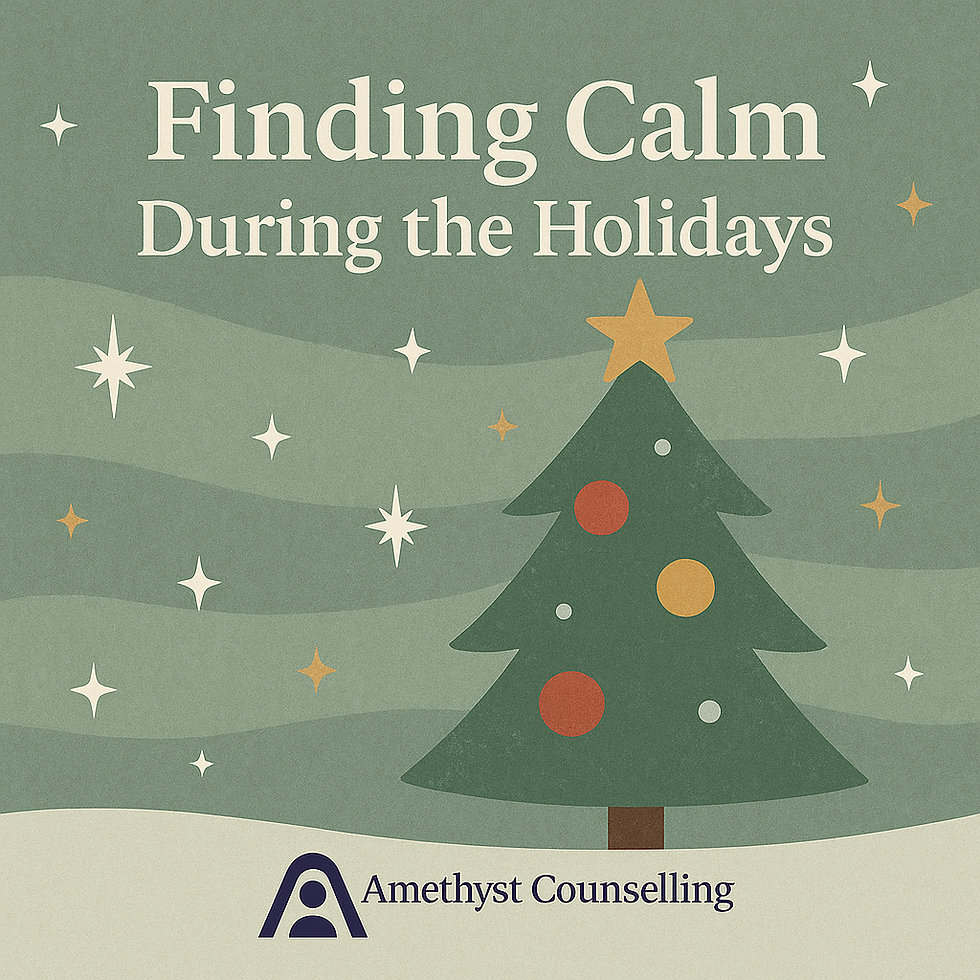Finding a counsellor
- ruthgem24
- Jan 29, 2020
- 3 min read
So yesterday I was browsing through Facebook, as you do, and came upon this short video by the BBC discussing counselling and how it isn’t regulated, anyone, yes anyone, can call themselves a counsellor with or without training!! So how do you know who to choose?
Now I remember before I started to train as a counsellor and the confusion, contradicting information etc. there is out there about what constitutes a qualified counsellor and what makes a safe, ethical counsellor.
It is such a confusing minefield of information finding a counsellor, made harder by the fact that you are quite possibly already not in the best place, so I thought I would write a little bit about how you can find a counsellor, that is right for you, that is fully qualified and works safely.
· Check out their training – A fully qualified counsellor will have undertaken a course, at a college (so actually been physically present with tutors rather than done a course online). The person should not have done anything less than a a Level 4 diploma (which is what I have). This course should also have involved a minimum of 100 hours of actual face to face work with real clients (which mine did).
· Ask if they go to supervision, how often and how long for. As part of being a safe ethical counsellor I have to go and see my counselling supervisor at least once a month for an hour and a half each time. A counselling supervisor is another counsellor who has often done extra training. They help to ensure I am working safely and ethically at all times.
· Check out if they are registered with a counselling body, there are quite a few out there i.e. BACP, NCS, UKCP, ACC etc. If someone is a member of one of these then it means they have done the full training, practised face to face with clients, have supervision and are practising ethically.
· Ask who they are insured with. A qualified counsellor will be insured with an insurer such as Towergate, Holistic insurance (who I am with) etc. To get insurance the insurer has to see the persons qualification certificates and won't accept anything lower than a Level 4.
· Look on a therapist directory – Most counselling bodies will have their own (BACP, UKCP etc.) which you have to be a member to be on, there is also ones like the counselling directory and Psychology today. To join these you have to be a member of a recognised counselling body and as you can only join a counselling body if you have done at least a level 4 qualification anyone on these directories have the appropriate qualifications and experience.
· Theoretical foundation – every counsellor will have been trained in a type of counselling. There are so many that it would take a long time for me to list them all. If you visit here;
you can see a comprehensive list and short description. Knowing about the different types out there and understanding what works for you, you may want to choose a counsellor who works in a certain way. I was initially trained as a person centred counsellor and have since become more integrative, incorporating CBT (Cognitive Behavioural Therapy), Solution focused brief therapy, couples/relationship therapy, NLP (Neuro Linguistic Programming), EFT (Emotional Freedom Techniques) and IEMT (Integral Eye Movement Therapy) into my work.
· Experience – check out their experience, do the issues they work with fit what your needs are? Although important I would say this isn’t as important as the other points, a safe ethical counsellor will let you know if they feel they don’t know enough about your issue and refer you to someone who will. Also studies have shown that THE most important factor in successful counselling isn’t the knowledge, experience, theoretical foundation, of the counsellor but the relationship between you and them, do you get on with them etc.
· Connection – as mentioned above the most important factor in successful counselling is the relationship between yourself and the counsellor, do you get on with them? Do you feel comfortable with them? I would recommend you go and have an initial meeting to see how you work together.
So as you can see there is a lot to consider. Why not write yourself a little checklist of the things that are important to you when finding a counsellor and see who fits them? Never be afraid to ask questions, any counsellor, myself included, will be happy to answer anything you want to know to help you choose.
Good luck.




Comments